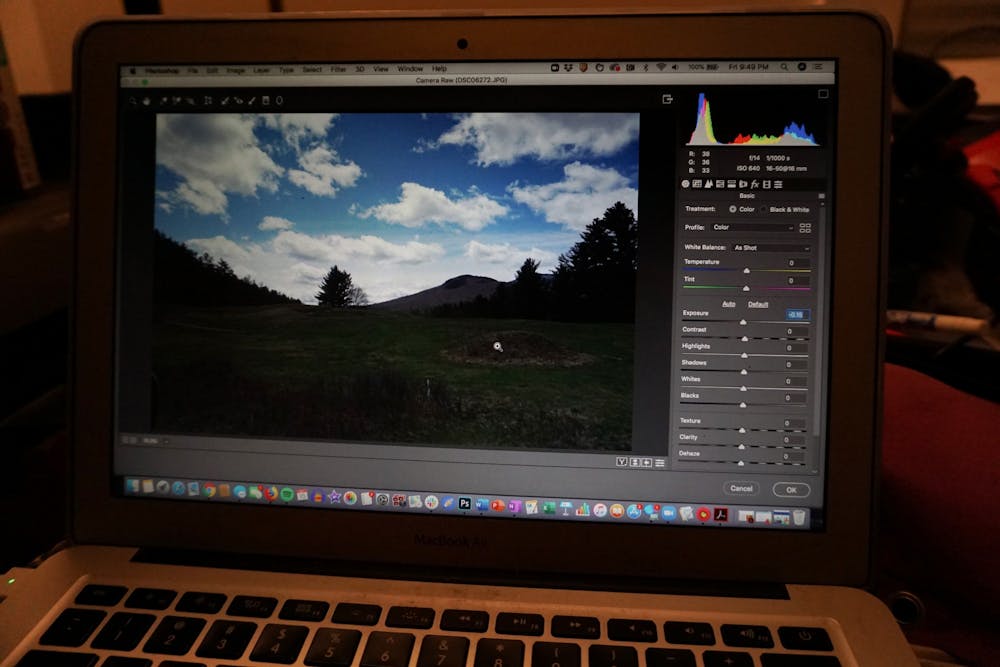The English and Cinema Studies departments are offering a new course this fall that will allow students to learn about the history of fakes and forgeries in visual mediums like photos, as well as how to use photo manipulation tools.
The seminar, titled "Fakes, Forgeries, and Forensics in Digital Media," will be taught by professor Elizabeth Scheyder, who believes it is important to study the forgeries of the past and present because of their potential to manipulate public opinion. While forgery has been addressed in similar courses, Scheyder said she wants to take a unique approach with her seminar.
“The traditional academic part of the course won’t be just dry lectures," she said. "I’m not that kind of teacher.”
Students will read and study the history of forgery and discuss historical and contemporary debates about whether the creations of fakes devalue the original, and if they have any value in themselves. Class time will be divided among lecture, discussion, lab time — creating and detecting fakes and forgeries — and student presentations, according to the course syllabus.
Scheyder said the class will contain hands-on work including using Photoshop and GNU Image Manipulation Program to digitally manipulate photographs. A midterm project will require students to create their own digital media — a fake or forgery — and present it to the class, explaining how they produced the fake.
Course topics will include faked antiquities, digital fakery, special effects, and how to detect modifications, Scheyder said. While students will examine forms of forgery such as antiquities and documents, Scheyder said photographs will be the main focus of the course.

The class will also incorporate more recent examples of digital forgery, such as the deepfake phenomenon, Scheyder said. Deepfakes are manipulated videos created by artificial intelligence that produce fake images and sounds that appear to be real, according to CNBC.
RELATED:
LPS launches free online course to teach resilience and increase optimism during pandemic
Wharton introduces six-week online course on coronavirus and global crisis management
Scheyder said she wants to avoid highly politicized examples of digital forgery to avoid distracting her class, adding that students will find non-political forgeries to be just as effective at manipulating public opinion.
These examples include how digitally editing models' images can shape public opinion about beauty narratives, as well as how changes in cinema can lead people to question the difference between special effects and fake media, she said.
“I can see this course being relevant to people who are interested in public affairs. Communication and public opinion can be swayed by fake media,” Scheyder said. “I’m going to try and keep politics out of it.”
College junior Delia Chen, who took a writing seminar titled “What Drives Engineering” with Scheyder, said the professor was organized and interacted with her students often, giving them proper feedback and academic advice.
“I decided to stick with the course because I found the professor to be so warm, nice, and extremely engaging,” Chen said.
Scheyder serves as an Instructional Technology Project Leader in the School of Arts and Sciences, and is a lecturer in the College of Liberal and Professional Studies. From Penn, she holds a bachelor's degree in Systems Engineering, a master's degree in Teaching English to Speakers of Other Languages, and a Doctor of Philosophy degree in Educational Linguistics.
With new advancements being made in the field of forgery on a yearly basis, Scheyder said she is optimistic the course will have limitless discussion material. She added the class needs high enrollment to justify continuing the course past fall 2020.
Scheyder emphasized how the study of forgery, like all fields of study, is constantly evolving.
“The technology is moving so fast. I could see teaching this every year and having new examples.”









